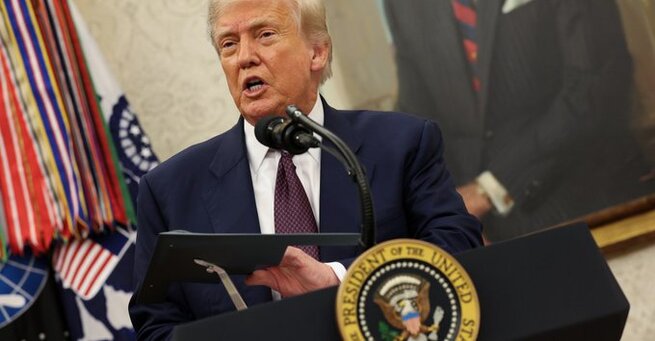
Trump’s 100 Percent Tariff on Computer Chips: What It Really Means
In a headline-grabbing move, former President Donald Trump has announced a sweeping 100 percent tariff on computer chips and semiconductors. But here’s the catch: the tariff comes with a major loophole. If a company is currently building—or has simply committed to building—chip manufacturing facilities in the United States, the tariff won’t apply. This announcement, made during a high-profile press conference, has sparked confusion, debate, and concern across the tech and manufacturing sectors. So, what does this mean for chipmakers, U.S. manufacturing, and the broader economy? Let’s break it down.
Trump’s Computer Chip Tariff: Big Threat or Clever Incentive?
At face value, a 100 percent chip tariff sounds like a heavy-handed move designed to punish foreign manufacturers. But Trump’s message was more nuanced. Companies like Apple that are actively investing in domestic manufacturing appear to be exempt from the policy. Even firms merely “in the process” of building U.S.-based chip facilities could avoid the tax. Trump emphasized that this tariff is less about punishment and more about reshoring production. The real goal seems to be pressuring tech giants to bring chip manufacturing back to American soil—without explicitly banning imports outright.
The Loophole That Changes Everything
What makes this announcement particularly controversial is the size of the loophole. Trump’s language suggests that even symbolic or early-stage commitments to U.S. manufacturing are enough to bypass the tariff. This opens the door for companies to skirt the 100 percent chip tariff through minimal investment or future promises rather than actual production. It’s a strategic gray area that might encourage short-term announcements rather than long-term factory jobs. For many companies, this could be a political workaround rather than a real shift in operations.
What It Means for U.S. Manufacturing and the Chip Supply Chain
While the threat of a 100 percent tariff on computer chips could potentially boost domestic investments, the overall impact depends on how strictly the rules are enforced. If companies are allowed to avoid tariffs simply by announcing future plans, the policy may not result in meaningful job creation or reduced reliance on foreign chipmakers. On the other hand, the announcement could accelerate existing plans to build in the U.S., especially among firms already considering expansion. Either way, the move underscores the growing political pressure to secure the semiconductor supply chain on home turf.
𝗦𝗲𝗺𝗮𝘀𝗼𝗰𝗶𝗮𝗹 𝗶𝘀 𝘄𝗵𝗲𝗿𝗲 𝗿𝗲𝗮𝗹 𝗽𝗲𝗼𝗽𝗹𝗲 𝗰𝗼𝗻𝗻𝗲𝗰𝘁, 𝗴𝗿𝗼𝘄, 𝗮𝗻𝗱 𝗯𝗲𝗹𝗼𝗻𝗴. We’re more than just a social platform — from jobs and blogs to events and daily chats, we bring people and ideas together in one simple, meaningful space.